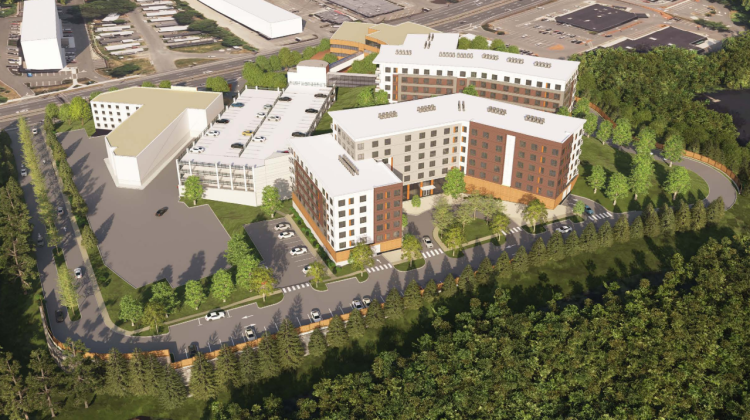SAUGUS — The Board of Appeals met Thursday night to review the conditions for the Broadway apartments project. This meeting did not include public comment, as that part of the process has come to an end. This was strictly a discussion of the Board along with Town Counsel Jesse Schomer.
Schomer highlighted key conditions that he believed were important and ones that the Board might want to have a discussion on. Board members also had the opportunity to bring up other conditions that they wanted to add verbiage to.
“Some of the conditions come from the peer review consultants, the town departments, as well as conditions that are regularly imposed on recent developments in the Business Highway Sustainable Development District,” Schomer said.
He noted that the conditions drafted for the Board are suggestions and that it is up to their discretion to decide whether they are appropriate.
“Sometimes you may feel that the conditions that I drafted go too far, or maybe you think they don’t go far enough,” he said. Schomer said that the Board would be weighing two factors when it comes to the 40 B apartments. Those factors were regional, the need for affordable housing, and the other was local concerns outweighing those needs.
Board member Chris Reilly said he didn’t think it was that simple. “There’s a regional need for housing. There are local concerns. We work for the locality. That’s what we’re here for. In my mind, it’s the local concerns versus the likely outcome if we were to not approve this,” he said. Reilly is referring to the fact that if Saugus does not approve the project, the state could, leading to the project getting the go-ahead with zero conditions in place by the town.
Section A of the conditions was called “boilerplate” conditions for the most part. It highlights requirements that will be mandated by the subsidizing agency when it comes to affordable housing. These mandates include affordable housing units that are indistinguishable from market-rate units; they must be interspersed throughout the project and cannot be built last.
“Essentially, you have to be able to, if you walk down the hall of these buildings, you won’t be able to know one’s affordable and one’s market, and that’s required by the state,” Schomer said.
One of the conditions highlighted was A11, which states that when the building first leases up, 70% of the affordable housing units will be rented to local Saugus residents, which includes town employees, residents, and people who work in Saugus.
Another condition brought up was B11, which focuses on peer reviewing the project. “After the Board’s review is complete, they’ll have to advance their plans to construction documents, which are the final detailed plans that are needed for construction permits, building permits, sewer connections, (and) whatnot. The Board has the right to require those to be peer reviewed,” Schomer said.
Board member Frank Federico noted that B37 of the conditions contradicts C22, as B37 highlights the use of organic fertilizer while C22 mentions fertilizer and pesticides but does not use the word organic. Later on in the meeting, Schomer made a note to add “organic” to C22 so it would not contradict section B.
Another discussion brought up by Board member Peter Rossetti and Federico was about the use of salt and calcium chloride during storms. The worry was that the building commissioner, who would be the one to determine if salt was needed over the calcium chloride, would not be reachable at 2 a.m. during a bad storm.
“My concern is at 2 in the morning, they can’t source calcium chloride, and they’re trying to make the property safe for the morning,” Federico said. He continued that he remembered times when the town had run out of the substance and needed to use salt. A note was made, and it was decided to make Public Safety the ones to determine the need.
Rossetti also asked about the conditions that were related to the MBTA and public transportation. He pointed out the use of “reasonable best efforts to obtain an MBTA stop.” He questioned the verbiage as it meant there could be an MBTA stop in a few years or never, stating, “One of the points about this whole development is that supposedly people will be using public transportation.” In the end, the Board agreed that the wording was the only way it could be said, as they don’t have control over the MBTA’s decisions.
Section B also discussed the addition of signage on the fence around the building, which would state no trespassing. There was also a condition that stated no one, including pedestrians, vehicles, bikes, or pets, could enter Forest Street from the apartments, which was a major concern of residents.
One of the final focuses was in Section C, where the Board agreed that the project could have onsite rock crushing. They believed it would mean less traffic on Route 1. However, an added condition was that the project could not then sell the extra crushed rock.
The meeting would continue with a discussion of waivers; however, this would be completed after press time.



